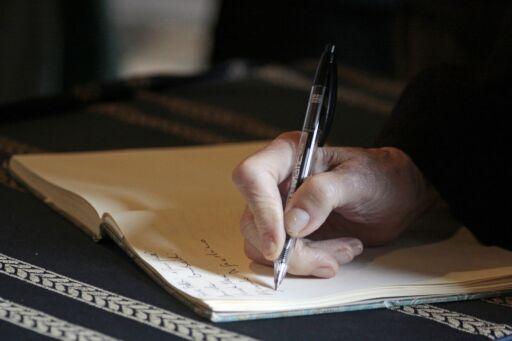But building a real alternative to the tired old two-party system will take everything we’ve got.
By leaving a gift – large or small – to the SDP, you can continue to make a difference even when you’re no longer with us. You’ll be helping us to work towards a positive political future, as we continue to grow as a political force.
How to leave a gift to the SDP
Writing a will – or amending an existing one – is the most effective way to leave a gift to the SDP.
There are various types of gift that you can leave in your will, and a solicitor can advise you on the most appropriate:
- Pecuniary gift – A set amount of money.
- Residuary gift – A percentage of your estate after debts, taxes and other gifts have been paid. Because this isn’t a set amount, you won’t have to keep it updated as circumstances change. And you won’t have to worry about inflation.
- Reversionary gift – A gift which prioritises any named family members and friends, making sure they are cared for before the SDP receives your gift.
- Specific gift – One or more specified items, such as a property, jewellery, or investments.
To avoid confusion or delay, it’s vital that you or your solicitor write the SDP’s full name and address correctly in your will:
Social Democratic Party
Trafford House, Chester Road
Manchester
M32 0RS
We recommend you seek advice from your solicitor when you draw up your will. They have the skills and experience to point out any pitfalls or gaps. And always remember that you can update your will at any time, as and when your circumstances change.
Keep copies of your will safe and easily accessible upon your death. And keep it up to date, particularly if your circumstances change.
“I decided to leave money in my will to the SDP, as it’s the party that I agree with most. It turned out to be easy to arrange. I did it through my solicitor when he wrote to me – as he does every five years or so – to ask if the provisions I’d made in my last will were still appropriate. I decided to ditch some of the charities I’d previously named as their values no longer align with mine, and replaced them with the SDP.”
Anne, North West
Get in touch
It would be really helpful if you could let us know that you’ve left us a legacy in your will. But if you prefer not to tell us, that’s fine too.
If you’ve got any questions, or simply want to discuss your legacy, email us at legacy@sdp.org.uk. We will respect your privacy and treat you with sensitivity and respect.
FAQs
Do I need a will?
Without a will, you have no control over your estate. You may not be passing it to the people and organisations you most want to help. The legal system will decide who receives what, and none of your estate would be passed to the SDP. Your estate is also unlikely to be tax-efficient without good planning.
How can I change an existing will to leave a gift to the SDP?
People’s circumstances change, and you may want to update your existing will. For simple changes, you can add a codicil, which is like an appendix to your will. But complex changes will require a new will, and you should make sure that any previous wills are destroyed or clearly marked as out of date.
Do I need an executor for my will?
You will need at least one executor who will be responsible for carrying out the instructions in your will. Most people have between two and four executors. You may also wish to appoint a (chargeable) professional executor such as a solicitor.
Can I write my own will?
You can, but it makes sense to hire a solicitor, not least because just one small error can invalidate an entire will. To save money, you may want to plan ahead of your appointment with a solicitor by listing all the gifts you’d like to leave.
How do I find a solicitor?
The Law Society provides a number of contact to help you find a solicitor, depending on where you live in the UK
| Location | Website | Phone number |
| England and Wales | www.lawsociety.co.uk | 0870 606 2555 |
| Scotland | www.lawscot.org.uk | 0131 226 7411 |
| Northern Ireland | www.lawsoc-ni.org | 028 9023 1614 |
| Channel Islands | www.jerseylawsociety.je | 01534 601 700 |
| Isle of Man | www.iomlawsociety.co.im | 01624 662910 |
What is the SDP’s full name and postal address?
If you’re planning to leave the SDP a bequest, you’ll need the correct wording, which is:
Social Democratic Party
Trafford House, Chester Road
Manchester
M32 0RS
Should I inform the SDP of my plans?
It would be helpful if you would let us know that you have named the SDP in your will. If you wish to do so, please email us at legacy@sdp.org.uk However, it isn’t necessary for you to do so.
I would like donations to the SDP at my funeral rather than flowers. How can I make this happen?
If you wish people to make a donation to the SDP rather than offer flowers, please make the following statement in your will:
‘I request my executor to ensure that instead of flowers at my funeral, donations be made to Social Democratic Party, Trafford House, Chester Road, Manchester M32 0RS.’
Glossary
Administrator
An administrator manages the dispersal of an estate if there is no will or executor.
Asset
A single item from an estate, such as a house or a piece of jewellery.
Beneficiary
An individual or organisation who benefits from the estate of the person who has died.
Bequest
A gift made in a will.
Chattels
A movable item, such as a car or a painting.
Codicil
A document that is added to a will to change or add to it in some way.
Estate
The assets and personal belongings of a person who has died, including money.
Executor
An individual, named in a will or codicil, who is to be responsible for dealing with an estate.
Gift
A legacy in a will.
Inheritance tax
A tax on a person’s estate after death.
Intestacy
The situation where someone has died with no will.
Legacy
A gift left in a will. It may be a pecuniary legacy, a residual legacy, a reversionary legacy or a specific legacy.
Letter of administration
An official document issued by a court to empower an executor to deal with an estate.
Pecuniary gift
A set amount of money specified in a will.
Probate
A legal process to prove and accept a will as a valid document.
Residuary legacy
A percentage of an estate after debts and taxes have been paid and all gifts have been distributed.
Residue
Everything that remains of an estate once all debts, bills and taxes have been paid and gifts have been distributed.
Reversionary legacy
A gift that prioritises any named family members and friends, making sure they are cared for.
Specific gift
One or more specified items, such as a property, jewellery, or investments.
Testator
A person who writes a will.
Trust
A legal entity which holds and manages an asset without owning it.
Will
A document stating how a person wants to distribute their assets after they’ve died.
Witness
Someone who is present when a testator signs a will. A will needs two witnesses over the age of 18.






